Random
How Should A Humon Be, I Hate These Humons: The Great Autobiographical Fiction vs. Anti-Autobiographical Fiction Showdown 2k12/2k13
A thing I’ve been noticing is a formation of camps of a sort along the lines of how people feel about autobiographical fiction. Is this a thing?
I thought of this upon reading the title of a Tumblr post by my friend, James Tadd Adcox, a list of things he’s currently reading. The title: “Take this blue paint, cake it on your pale face. Make yourself something other than this world.” Something other than this world.
I’ve noticed that some people, in the current online/”indie” lit scene, always write about themselves or stand-ins for themselves in recognizably realistic, contemporary settings following the basic conventions of Realist Fiction, and some people seem allergic to ever acknowledging that they’re writing about themselves and Real Life and either truly eschew all autobiographical content or else drape, adorn, apply makeup or harsh lighting, bury their autobiographical content in oak chests in a vault hidden within a dark dank labyrinth of symbolism, metaphor, and words words words. Some, but not all, seem to view this decision as important or even central to their attitudes about art and maybe even about life, “being human,” human interaction.
And it has a social character, too, unsurprisingly. Hence my use of the word “camps.” There are magazines and social groups and patterns of Facebook/Tumblr sharing and liking that reflect a position: you’re either pro-autobiographical, pro-reality, or anti-. > kill author, which is now itself dead (hehe), comes to mind as an example of an anti-autobiographical fiction bastion. Muumuu House is an example of a press/journal that publishes almost exclusively autobiographical realist fiction.
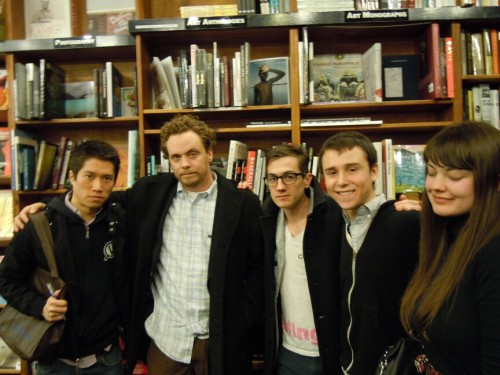
Photo from Muumuu House reading in New York. Notably, Tao has published both Blake Butler and Giancarlo DiTrapano, both not known for autobio fiction promotion, but he published their tweets so yeah that’s different
Reflected in this is on the one side an attraction to “relatable” “real life” content–fiction that is maybe seen as modest or valiant and ~~truthful~~ in its fidelity to actual events and emotions; on the other side, an attraction to inhuman, abstract, confusing, surreal, subversive, perverted, or fucked-up work based in words, not in “life,” oftentimes antipathetic to life, and to humans, with their emotions and MacBooks.
Of course, like anything, it’s not as simple as that. And there are exceptions and crossover.
But I’m interested in this because I don’t feel attracted to either side as a definitive stance or guiding principle for writing or reading. I’m sure many people feel like me and like things on both sides of the line.
The upcoming 4th issue of my magazine, Pop Serial, has as a cover the following:
Apart from just liking Walter Davis the cover artist’s work, I liked this cover as a symbolic gesture of sorts. It has aesthetics that I don’t think suggest the autobiographical fiction camp. Of course realist autobio fiction can come with any cover and has no set visual aesthetic when that comes into play, but I feel like there is a certain type of straightforward, clean, minimalist, “twee,” or otherwise “cute”/”nice” art style that often denotes realist fiction about humans, if not necessarily about the human who wrote it. Anything you might find on the cover of an indie rock album can also commonly be found as a cover for a autobio realist fiction book. Likewise, the writing in much autobiographical realist fiction I read has a straightforward, clean, often minimalist style and narration.
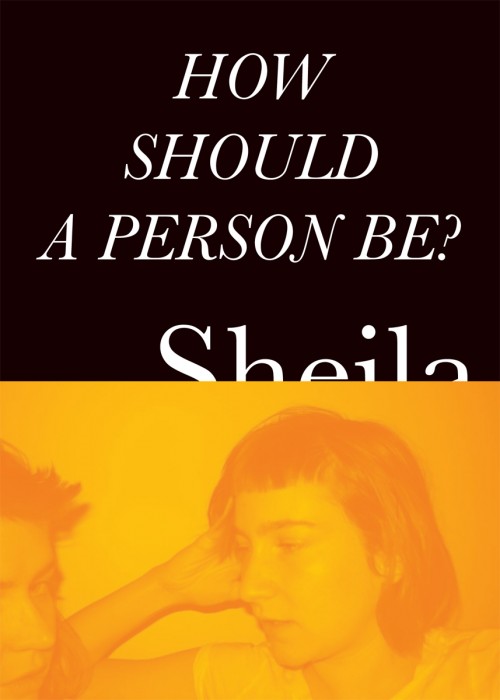
Sheila Heti’s book has inadvertently aided so many literary thinkpieces throughout 2012, thank you Sheila Heti
Pop Serial 4‘s cover has a loud, gnarly web-art type style. It is very knowing, tongue-in-cheek, ironic, etc. Some might even call it “ugly-looking.”
I find it very exciting and pleasing to look at.
And I love Walter Davis’s face at the top center. The artist is in the artwork, this gnarly, zany artwork. He’s nonetheless present. And he has no eyebrows, they’re shaved off. He’s literally nobrow.
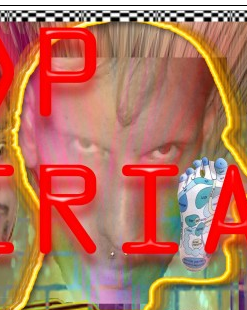
Walter Davis literally shaved off his own eyebrows probably during the calendar year 2012, I could get the date and time if u would like
The contents of the magazine are similarly unchained and nobrow. There are short poems with titles like “CVS” and “We’re Studying Ghost World.” There is Beckettish prose blocks with a free, unpredictable style with title “in the beginning was more than the word.” Feng Sun Chen and Guillaume Morissette are both in these pages.
I don’t claim to have broad or catholic taste. For example, I don’t watch horror films, at least in the genre of horror.
My point is that exciting fiction need not belong to any camp, and there is no great need for the author to be in her work or to not be in her work. I do think imagination is important to exciting art, but I don’t think imagination has to mean total invention or a back turning on the world as we experience it. I do think it means responding to your intuition and impulses, putting everything you love in a work, whether they make sense together or not. Put it all in.
Imagination has its domain everywhere. Reflecting your life can be interesting and exciting, avoiding/making up/distorting your life can be interesting. Inventing different worlds can be exciting. My favorite movie of 2012 was Holy Motors (the Times called it “cinema reloaded”–what is “literature reloaded”).
There are no rules. I want more exciting fiction of all kinds. I want good style. I want no regard for authority. I want ruleless campless exciting shit. It will all be done.
Tags: Autobiographical Fiction, James Tadd Adcox, kill author, muumuu house, Pop Serial, realism, Walter Davis

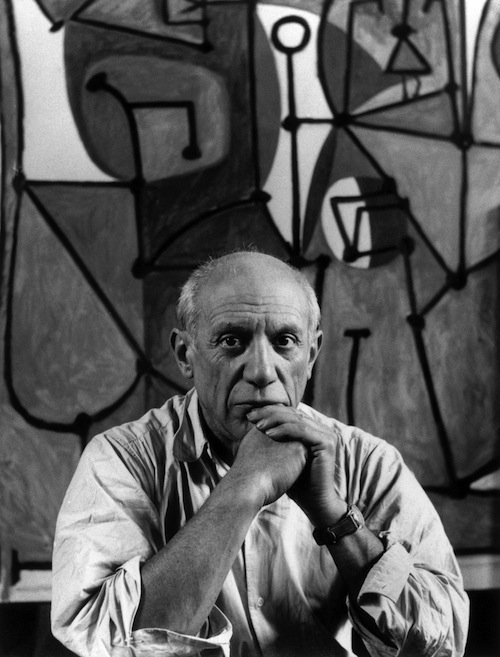
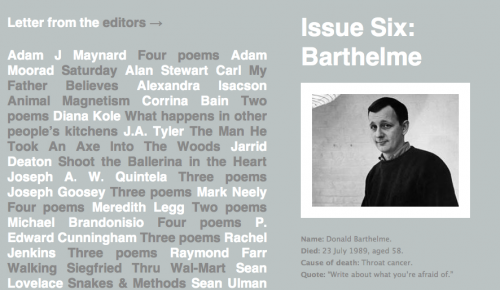
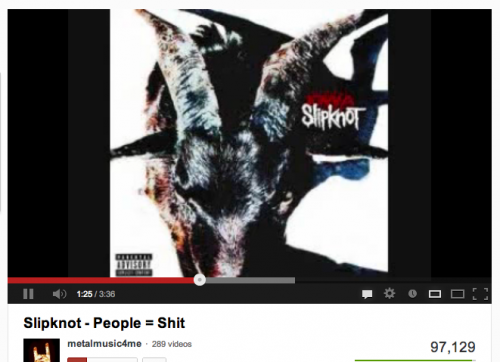
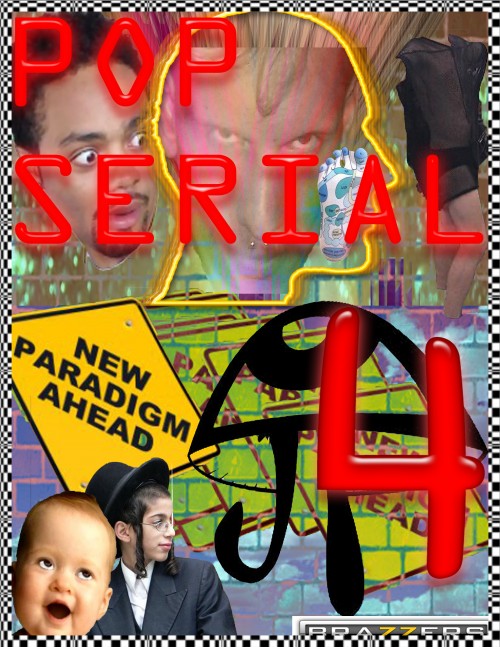
Ha. I thought the blue paint line was pretty autobiographical.
when i look at the cover of PS4 i think “pc games” and i like thinking “pc games” so i like the cover of PS4
Fuck all.
html is incapable of art.
The first thing i think when I see the walter davis art is ‘tumblr,’ which is not necessarily a bad thing, i think that’s where a lot of the most interesting culture is happening now. i know some folks associate this sort of art (ie seapunk images) with irony, but I see them more as joyfully kitschy. Which, at the risk of dredging back up the ‘new sincerity’ firestorm, reminds me of the debates surrounding some of the authors that I know interest you.
lol @ walter being ‘literally no-brow’
kind of uncanny, a game i remember from windows 95 http://www.amazon.co.uk/Hedz-Head-Extreme-Destruction-Zone/dp/B0009PVTPG